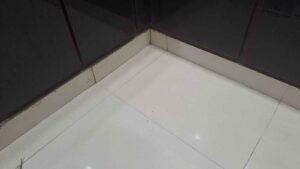Ever grappled with stubborn stains on your elegant marble surfaces? Drawing from my firsthand experience, I’ve mastered how to remove stains from marble with baking soda, and I’m here to guide you through the process.
My enthusiasm lies in imparting my knowledge and supporting others in their efforts to eliminate marble stains. However, there are many unexplored areas to delve into. I possess a vast amount of information to offer, including preventive measures and alternative techniques.
Let us delve deeper collectively and discover more tips and techniques to maintain the impeccable appearance of your marble.
Baking Soda: An Overview
Also known as bicarbonate of soda, this isn’t just your baking buddy for cookies and cakes. This versatile baking soda is a proven cleaning agent. Have a lingering odor? Sprinkle some on your carpet, let it sit, and vacuum the next day. Want a fresher-smelling fridge? Keep an open box inside.
When it comes to marble, the story gets even better. The gentle abrasiveness of baking soda can effectively remove various stains from marble countertops, from casual spills to the more troublesome ones.

How to Remove Stains From Marble Surface with Baking Soda
What You’ll Need
To remove a spot from a marble top with bicarbonate of soda, you will need the following:
- Baking soda (of course!)
- Soft cloth
- Water
- Sponge
- Mild dish soap
- Optional: hydrogen peroxide, mild detergent
Steps
- Identify the stain: Know thy enemy! The type of stain (oil-based, water-based, rust, or ink) will dictate the best treatment.
- Mix it up: Create a thick paste with baking soda and water. Aim for toothpaste consistency.
- Apply: Spread a thin paste layer over the stain using a spatula.
- Wait it out: Let the paste sit on the stain for about 24 hours.
- Gentle removal: Wipe off the paste with a soft cloth, being cautious not to scratch your marble.
- Cleanse and dry: Rinse the area with water to remove any residue and dry with a soft cloth.
- Stubborn stain? Repeat as necessary.

Effortlessly Remove Marble Stains: Baking Soda Tips for Countertops
1. Create a mixture of baking soda with water. Apply it to the soiled area and let it sit for several hours.
2. Make a paste using bicarbonate of soda and white vinegar. Let it rest in the region for many hours.
3. Make a paste with bicarbonate of soda and lemon juice. Apply it to the soiled area and leave it for many hours.
4. Mix sodium bicarbonate and hydrogen peroxide together to make a paste. Let the paste sit on the stained spot for several hours.
5. Rub the soiled area with a moist towel after sprinkling sodium bicarbonate.
6. Brush the area with sodium bicarbonate and dish soap.
7. Sprinkle sodium bicarbonate onto the blemish area and spray it with white vinegar. Use a soft cloth to clean.
However, it’s important to note that prevention is the best way to keep Marble looking its best. Always wipe up spills and scars as soon as possible, and use coasters or placemats to protect the surface from damage.
Safety First
While baking soda is a gentler method, it’s essential to ensure that you don’t inadvertently harm your marble. Always:
- Test in a hidden area first.
- Avoid aggressive scrubbing.
- Keep the surface dry before starting.
- Avoid harsh chemicals.
- Rinse thoroughly to ensure no residue remains.
How to Polish Marble with baking soda?
Looking for that extra shine? Mix a part of baking soda with three parts of water to form a creamy paste. Gently rub it on the marble, let it sit for 5 minutes, and then wipe off. Your marble will thank you with a gleam.
Keeping That Marble Pristine
For daily maintenance:
- Clean with mild dish soap and water.
- Stay away from acidic cleaners.
- Seal your Marble regularly.
- Be mindful of hot or cold items – use coasters.
- Deal with spills ASAP.
- No dragging heavy objects across your Marble.
What’s the Catch?
While baking soda has its merits, remember it’s mildly abrasive. There’s a potential risk of scratching or etching if not used correctly. Always rinse thoroughly to avoid any residue, which might lead to discoloration or further staining.
In summary, baking soda is a fantastic, budget-friendly solution for cleaning marble surfaces. However, as with all cleaning methods, care and attention are paramount to ensure you get the best results without causing any damage. Stay informed, and happy cleaning!
